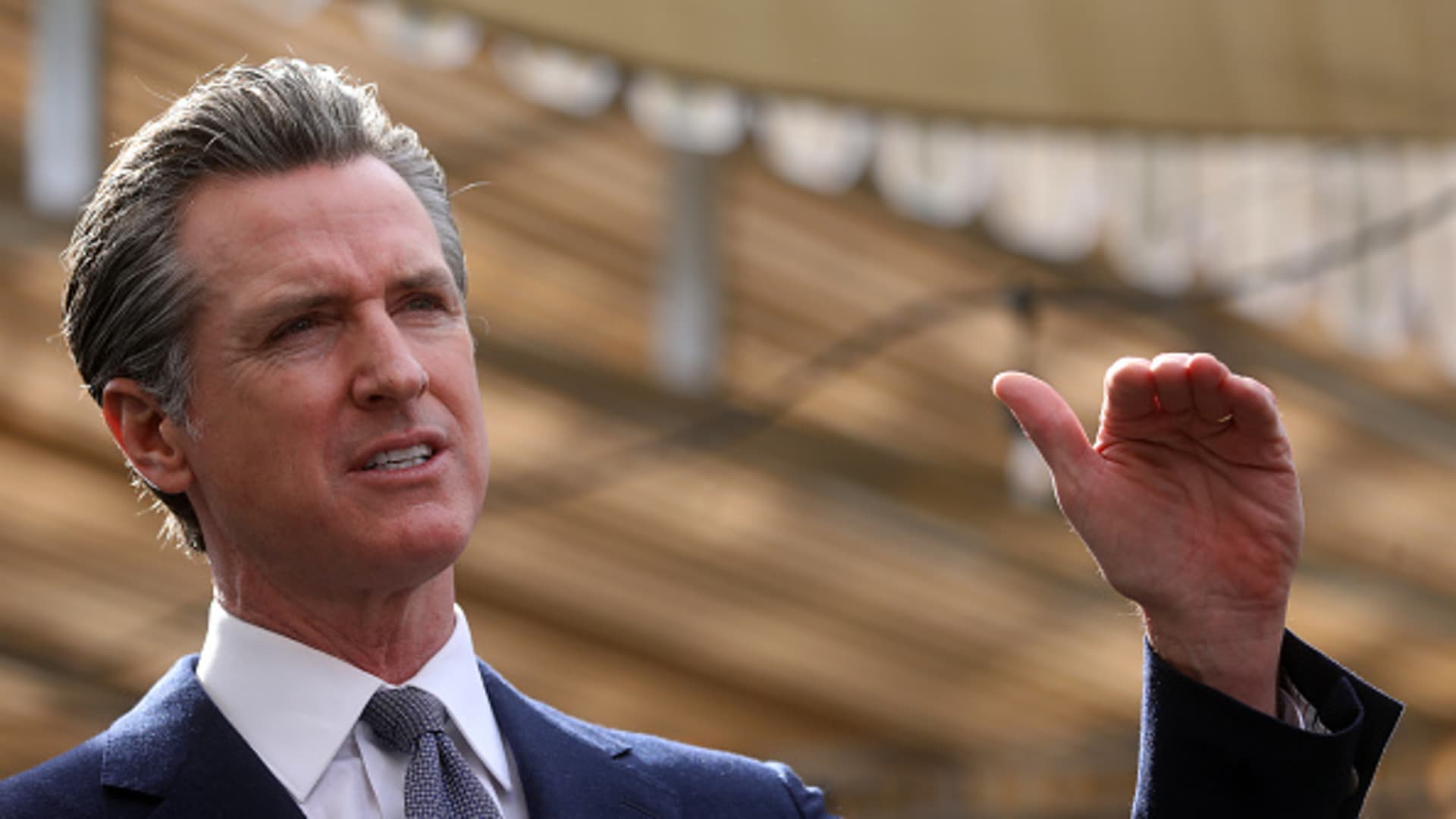Products You May Like
Tech investors and businesses in California have been betting on crypto for well over a decade. Now, the governor of the U.S. state with the largest economy is joining the party.
California Gov. Gavin Newsom issued an executive order Wednesday on cryptocurrencies, laying out a road map for regulatory and consumer protections and examining ways the state can take advantage of blockchain technologies and digital assets.
“Of the 800 blockchain businesses in North America, about a quarter of them are in California, dramatically more than any other state,” Dee Dee Myers, senior advisor to Newsom and director of the Governor’s Office of Business and Economic Development, told CNBC. “We’ve heard from so many that they want to be here, and we want to help them do that responsibly.”
Newsom is directing the state’s business and economic development office to work in collaboration with California’s Business, Consumer Services and Housing Agency and the Department of Financial Protection and Innovation.
The order is designed to ”create a transparent and consistent business environment for companies operating in blockchain, including crypto assets and related financial technologies, that harmonizes federal and California laws, balances the benefits and risks to consumers, and incorporates California values, such as equity, inclusivity, and environmental protection.”
The commission will submit its findings and recommend next steps. According to the order, it will “reflect consultation with relevant state agencies regarding the forthcoming federal reports on the relationship of crypto assets to priorities in energy, climate, and preventing criminal activity.”
Myers said the commission plans to hold roundtables and listening sessions with industry leaders, consumer advocates and even critics.
“The opportunities are almost endless,” Myers said. “We can do things like remove middlemen from transactions involving real estate or even automobiles. We can use it to protect people’s identity and provide benefits to people through government services. If we’re selling carbon offsets, we can make sure the same forest isn’t being sold twice and that there’s some record that’s transparent.”
Under California’s plan, the order would align with the Biden administration’s proposal in March to examine the risks and benefits of cryptocurrencies.
Some 37 states have pending legislation on cryptocurrencies and other digital assets, according to the National Conference of State Legislatures. In February, New Hampshire issued an executive order to propose new bitcoin laws.
Aaron Klein, senior fellow in economic studies at the Brookings Institution, said the most compelling part of Newsom’s plan is the exploration of ways to find “crypto solutions to existing problems.”
“California seems to be trying to walk a tightrope between moving the state forward to embrace new technology while making sure that consumers and investors are properly protected,” Klein said.
Newsom is sure to encounter skeptics, given concerns about the security of crypto and the speculative money that’s poured into digital assets. Criminals stole a record $14 billion worth of cryptocurrency last year, according to a report by data firm Chainalysis, and the SEC announced Tuesday that it will almost double its staff responsible for protecting investors in crypto markets.
“Blockchain has been around for decades, it has never found a widespread adoption use case,” said Stephen Diamond, a law professor at Santa Clara University. “There’s a mania underway and for the state of California to come in and essentially say this has huge potential, to me, they’re feeding the mania.”
Myers said it’s critical to put in place “guardrails” to eliminate the ability for bad actors to maneuver and to “make sure there are enforceable and clear guidelines to protect everybody.”
Timothy Massad, former chairman of the U.S. Commodity Futures Trading Commission, said it’s important to get states and government agencies on the same page.
“What we would not want to see is a situation where states are competing with one another to attract businesses by either lowering standards or providing incentives,” Massad said.
WATCH: SEC boosts crypto unit
